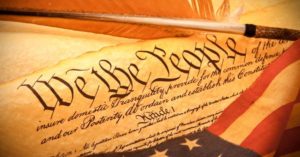Paul McCartney wrote Blackbird as a tribute to the civil rights struggle in the United States. It is a song that needs to be sung now for all seeking freedom. The incomparable Jon Batiste performs this rendition.
Shabbat Shalom
Paul McCartney wrote Blackbird as a tribute to the civil rights struggle in the United States. It is a song that needs to be sung now for all seeking freedom. The incomparable Jon Batiste performs this rendition.
Shabbat Shalom
 We the People of the United States, in order to form a more perfect Union, establish Justice, insure domestic Tranquility, provide for the common defense, promote the general Welfare, and secure the Blessings of Liberty to ourselves and our Posterity, do ordain and establish this Constitution for the United States of America.
We the People of the United States, in order to form a more perfect Union, establish Justice, insure domestic Tranquility, provide for the common defense, promote the general Welfare, and secure the Blessings of Liberty to ourselves and our Posterity, do ordain and establish this Constitution for the United States of America.
This weekend we welcome Shabbat Juneteenth! Our newest national holiday is an acknowledgment of past wrongs and a hope for a brighter future.
The extraordinary Shira Kline leads Batya Levines wonderful “We Rise” combined with the prayer of gratitude Modeh Ani.
Shabbat Shalom
We welcome a special Shabbat this evening coming during Pesach. As a holiday that celebrates our redemption and liberation, I share this wonderful rendition of We Shall Overcome sung in English, Hebrew, and Arabic by Diane Kaplan and Meera Eilabouni.
Shabbat Shalom
Inspiration and ideals in familiar music, as befitting the inauguration of our 46th president. A prayer in a song for our country
 June 19th is celebrated in American history as the date when the slaves were freed (it actually was the day when Union Troops entered Texas to enforce the final ending of slavery on June 19, 1865, three years after Lincoln’s Emancipation Proclamation of Sept 22, 1862). Juneteenth, as it is known, remains an aspiration. Today, in this special moment in time we find so much of America is still unfulfilled; Ideals yet to be achieved, dreams yet to realized. America was the Promised Land for so many, but the promise is a work in progress, a distant goal for far too many.
June 19th is celebrated in American history as the date when the slaves were freed (it actually was the day when Union Troops entered Texas to enforce the final ending of slavery on June 19, 1865, three years after Lincoln’s Emancipation Proclamation of Sept 22, 1862). Juneteenth, as it is known, remains an aspiration. Today, in this special moment in time we find so much of America is still unfulfilled; Ideals yet to be achieved, dreams yet to realized. America was the Promised Land for so many, but the promise is a work in progress, a distant goal for far too many.
On this Juneteenth let us affirm our commitment to make this special place one that extends ideals of equal justice, liberty, and equality to everyone. It is a long road ahead, but it is a journey worth traveling.
Find a group that promotes our sacred values such as the ADL, the ACLU, the Innocence Project, Repairers of the Breach, and support them. Learn how to help create the changes to make our society juster and fairer for all. Celebrate Freedom on Juneteenth and every day thereafter.
Today we remember and commit to something better